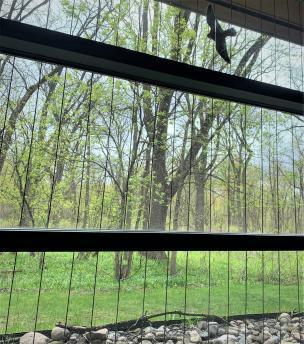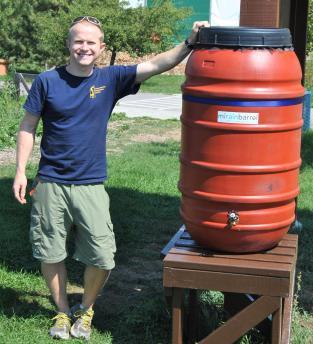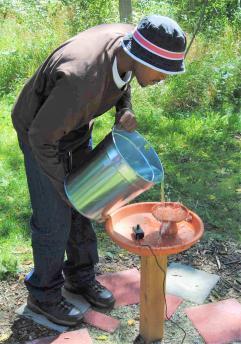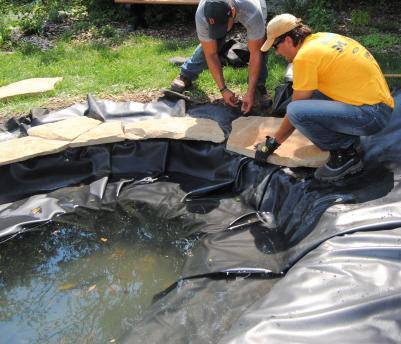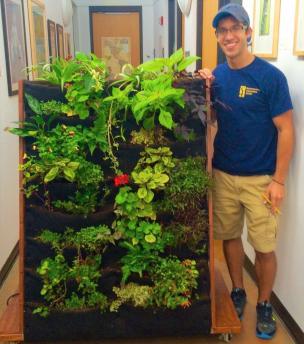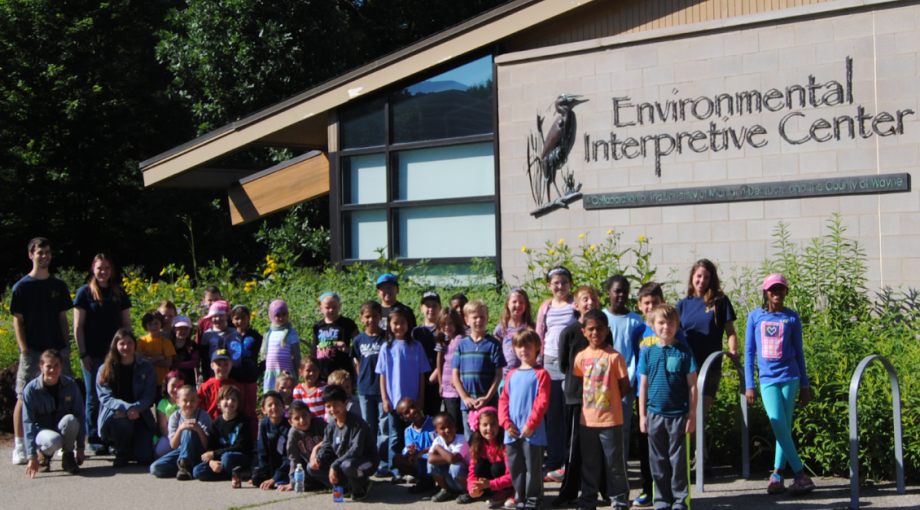We integrate the concept of sustainability into all of our educational programs and demonstration projects, both in the building and in the surrounding Environmental Study Area. We offer resources to assist people in learning more about environmental sustainability and stewardship. We are committed to minimizing our environmental impact in all areas of our operations, and constantly evaluate and scrutinize our practices. Our goal is to lead by example and become a model facility for sustainability as we share our passion for the environment.
Our commitment to sustainability is evident from the moment you arrive:
- Our building's unique design was inspired by a bird in flight, and vertical paracord were installed on our windows to help prevent bird strikes;
- Our concrete floors allow for passive heating in the winter;
- The building's design allows for ample natural lighting;
- One of the ways the EIC implements sustainable practices is through composting. The staff collect their personal compostable waste and utilize compost tumblers to decrease production of landfill waste within the building;
- The EIC maintains a community organic garden, rain gardens, a pollinator garden, and insect hotels;
- Our staff lends support to student organizations on campus such as the Student Sustainability Coalition and Planet Blue Ambassadors and provides learning opportunities for UM-Dearborn Students;
- In 2019, the University of Michigan-Dearborn became the first public university in Michigan to be recognized with a Bee Campus USA certification for its education and conservation efforts around pollinators, such as the PolliNation Project and the annual Pollinator Photo Contest.

